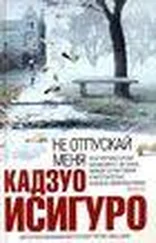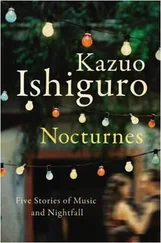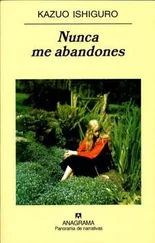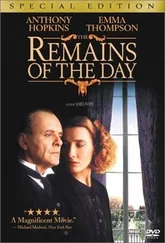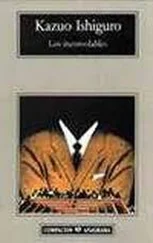“I do realise that, Kath. That’s exactly why I can’t rush back into it with Ruth. We’ve got to think about the next move really carefully.” Then he sighed and looked right at me. “Like you say, Kath. We’re going to be leaving here soon. It’s not like a game any more. We’ve got to think carefully.”
I was suddenly lost for what to say and just sat there tugging away at the clovers. I could feel his eyes on me, but I didn’t look up. We might have gone on that way for a while longer, except we were interrupted. I think the boys he’d been playing football with earlier came back, or maybe it was some students strolling by who came and sat down with us. Anyway, our little heart-to-heart was at an end and I came away feeling I hadn’t done what I’d set out to do—that I’d somehow let Ruth down.

I never got to assess what kind of impact my talk with Tommy had had, because it was the very next day the news broke. It was midway through the morning and we’d been in yet another Culture Briefing. These were classes where we had to role play various people we’d find out there—waiters in cafés, policemen and so on. The sessions always got us excited and worried all at the same time, so we were pretty keyed up anyway. Then at the end of the lesson, as we were filing out, Charlotte F. came rushing into the room and the news about Miss Lucy leaving Hailsham spread through us in an instant. Mr. Chris, who’d been taking the class and who must have known all along, shuffled off guiltily before we could ask him anything. At first we weren’t sure if Charlotte was just reporting a rumour, but the more she told us, the clearer it became this was for real. Earlier in the morning, one of the other Senior classes had gone into Room 12 expecting Music Appreciation with Miss Lucy. But Miss Emily had been there instead and she’d told them Miss Lucy couldn’t come just at that moment, so she would take the class. For the next twenty minutes or so everything had gone quite normally. Then suddenly—right in mid-sentence, apparently—Miss Emily had broken off from talking about Beethoven and announced that Miss Lucy had left Hailsham and wouldn’t be returning. That class had finished several minutes early—Miss Emily had rushed off with a preoccupied frown—and the word had started to go round as soon as the students had come out.
I immediately set off to look for Tommy, because I desperately wanted him to hear it first from me. But when I stepped into the courtyard, I saw I was too late. There was Tommy, over on the far side, on the edge of a circle of boys, nodding to what was being said. The other boys were animated, maybe excited even, but Tommy’s eyes looked empty. That very evening, Tommy and Ruth got back together again, and I remember Ruth finding me a few days later to thank me for “sorting it all out so well.” I told her I probably hadn’t helped much, but she was having none of that. I was most definitely in her good books. And that was more or less the way things stayed throughout our last days at Hailsham.
Sometimes I’ll be driving on a long weaving road across marshland, or maybe past rows of furrowed fields, the sky big and grey and never changing mile after mile, and I find I’m thinking about my essay, the one I was supposed to be writing back then, when we were at the Cottages. The guardians had talked to us about our essays on and off throughout that last summer, trying to help each of us choose a topic that would absorb us properly for anything up to two years. But somehow—maybe we could see something in the guardians’ manner—no one really believed the essays were that important, and among ourselves we hardly discussed the matter. I remember when I went in to tell Miss Emily my chosen topic was Victorian novels, I hadn’t really thought about it much and I could see she knew it. But she just gave me one of her searching stares and said nothing more.
Once we got to the Cottages, though, the essays took on a new importance. In our first days there, and for some of us a lot longer, it was like we were each clinging to our essay, this last task from Hailsham, like it was a farewell gift from the guardians. Over time, they would fade from our minds, but for a while those essays helped keep us afloat in our new surroundings.
When I think about my essay today, what I do is go over it in some detail: I may think of a completely new approach I could have taken, or about different writers and books I could have focused on. I might be having coffee in a service station, staring at the motorway through the big windows, and my essay will pop into my head for no reason. Then I quite enjoy sitting there, going through it all again. Just lately, I’ve even toyed with the idea of going back and working on it, once I’m not a carer any more and I’ve got the time. But in the end, I suppose I’m not really serious about it. It’s just a bit of nostalgia to pass the time. I think about the essay the same way I might a rounders match at Hailsham I did particularly well in, or else an argument from long ago where I can now think of all the clever things I should have said. It’s at that sort of level—daydream stuff. But as I say, that’s not how it was when we first got to the Cottages.
Eight of us who left Hailsham that summer ended up at the Cottages. Others went to the White Mansion in the Welsh hills, or to Poplar Farm in Dorset. We didn’t know then that all these places had only the most tenuous links with Hailsham. We arrived at the Cottages expecting a version of Hailsham for older students, and I suppose that was the way we continued to see them for some time. We certainly didn’t think much about our lives beyond the Cottages, or about who ran them, or how they fitted into the larger world. None of us thought like that in those days.
The Cottages were the remains of a farm that had gone out of business years before. There was an old farmhouse, and around it, barns, outhouses, stables all converted for us to live in. There were other buildings, usually the outlying ones, that were virtually falling down, which we couldn’t use for much, but for which we felt in some vague way responsible—mainly on account of Keffers. He was this grumpy old guy who turned up two or three times a week in his muddy van to look the place over. He didn’t like to talk to us much, and the way he went round sighing and shaking his head disgustedly implied we weren’t doing nearly enough to keep the place up. But it was never clear what more he wanted us to do. He’d shown us a list of chores when we’d first arrived, and the students who were already there—“the veterans,” as Hannah called them—had long since worked out a rota which we kept to conscientiously. There really wasn’t much else we could do other than report leaking gutters and mop up after floods.
The old farmhouse—the heart of the Cottages—had a number of fireplaces where we could burn the split logs stacked in the outer barns. Otherwise we had to make do with big boxy heaters. The problem with these was they worked on gas canisters, and unless it was really cold, Keffers wouldn’t bring many in. We kept asking him to leave a big supply with us, but he’d shake his head gloomily, like we were bound to use them up frivolously or else cause an explosion. So I remember a lot of the time, outside the summer months, being chilly. You went around with two, even three jumpers on, and your jeans felt cold and stiff. We sometimes kept our Wellingtons on the whole day, leaving trails of mud and damp through the rooms. Keffers, observing this, would again shake his head, but when we asked him what else we were supposed to do, the floors being in the state they were, he’d make no reply.
Читать дальше





